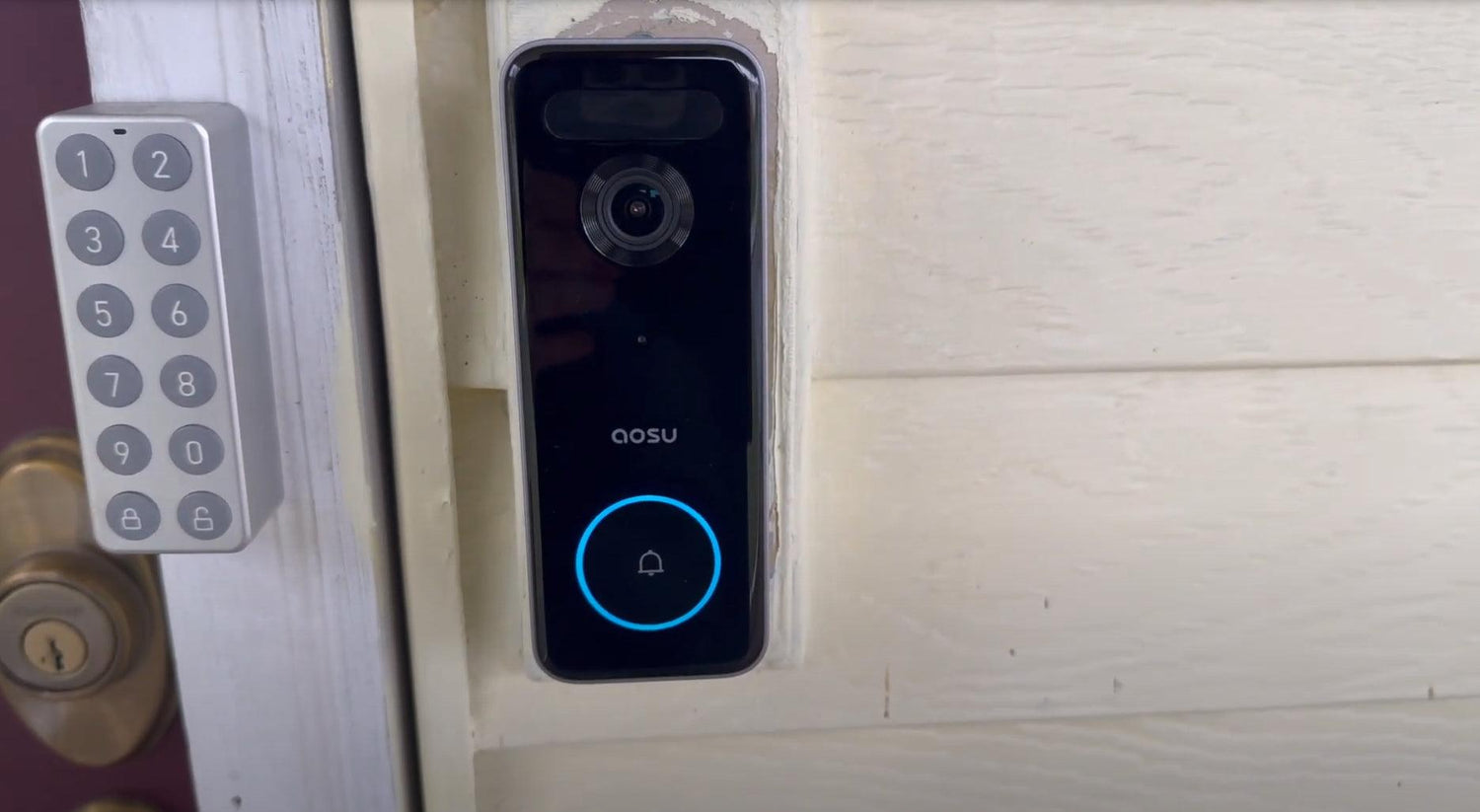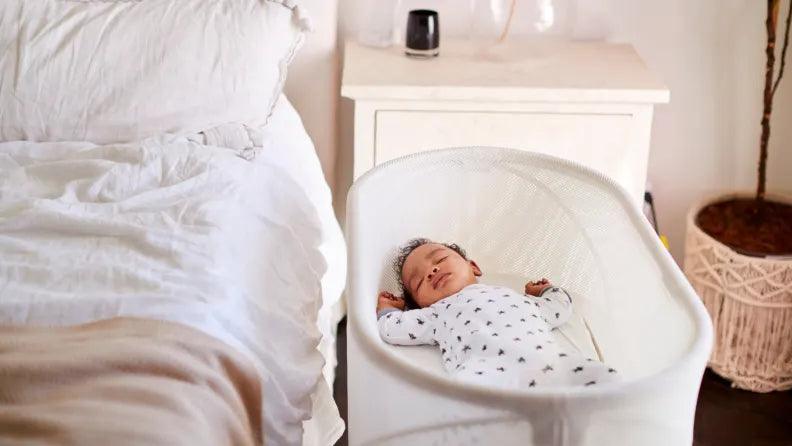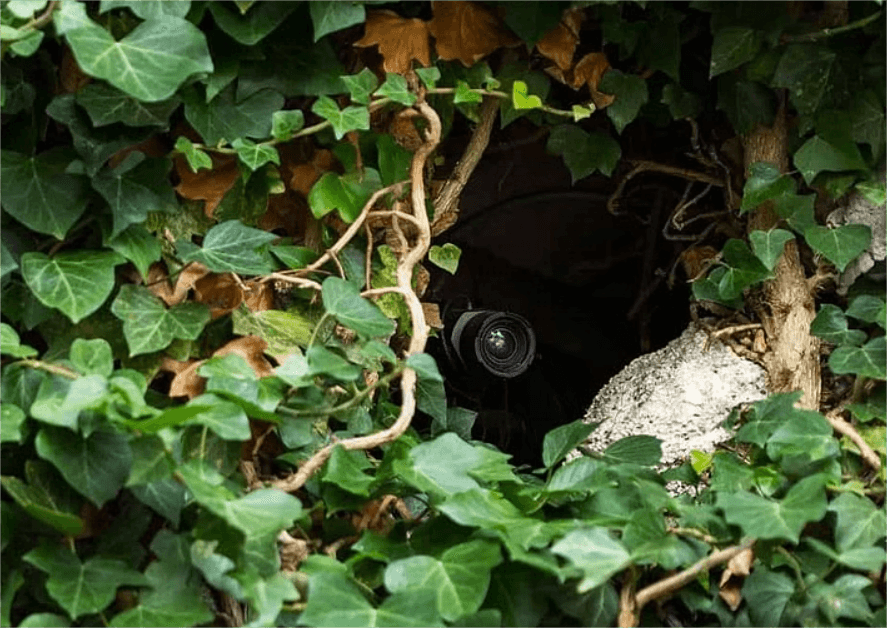Ensuring personal safety and privacy is a significant concern for both tenants and landlords. However, navigating the rules around security systems and surveillance in rental properties can be complex. This blog will address three critical questions:
-
Can tenants put a camera outside their apartment door?
-
Can tenants install security systems without landlord permission?
-
Can landlords record tenants without their permission?
Now, let’s dive in and solve these concerns.
Can I Put a Camera Outside My Apartment Door?
It depends. Tenants may want to install security cameras outside their apartment doors to monitor hallways and common areas for added safety. However, this raises several legal and practical issues that must be addressed.
Common Area Restrictions
In most rental properties, hallways, lobbies, and other shared spaces are considered common areas. These areas are typically under the landlord's control, and tenants usually do not have the right to modify or install devices in these spaces without explicit permission.
-
Privacy Concerns: Installing a camera in a common area can raise significant privacy issues. Other tenants and visitors may feel uncomfortable being recorded without their consent. In many jurisdictions, there are strict laws governing the recording of individuals in common areas without their knowledge and consent. These laws are designed to protect the privacy of all residents.
-
Building Policies: Many apartment buildings have specific policies prohibiting tenants from installing any devices in common areas. These policies are often outlined in the lease agreement or the building's rules and regulations. Violating these rules can result in fines, penalties, or even eviction.

Gaining Landlord Permission
To legally install a camera outside your apartment door, you must seek and obtain permission from your landlord.
-
Start by submitting a formal request in writing, explaining why you want to install the camera and how it will enhance security.
-
Provide specific details about the camera, including its placement, installation process, and measures taken to ensure it does not infringe on others’ privacy.
-
Be prepared to address any concerns the landlord might have, particularly regarding privacy and potential property damage.
By presenting a clear and respectful proposal, you increase the likelihood of gaining your landlord's approval.
Can Tenants Install Security Systems Without Landlord Permission?
Generally, NO. Tenants should not install security systems without first obtaining permission from their landlord.
-
Lease Agreement Terms: Most lease agreements include specific clauses regarding alterations to the property. Installing a security system often involves modifications, such as drilling or wiring, that require landlord approval to ensure they are in line with the lease terms.
-
Property Protection: Security system installations can sometimes cause damage to the property. By seeking permission, you ensure that any modifications are done correctly and safely, protecting both the property and your security deposit.
-
Liability Concerns: Unauthorized installations can create liability issues. If a security system malfunctions or causes damage, it could be a problem for both the tenant and the landlord. Getting approval helps to clarify responsibility and prevent any potential disputes.
-
Privacy Considerations: Security systems, particularly cameras, can raise privacy concerns for other tenants and neighbors. Landlords need to ensure that any surveillance complies with privacy laws and respects everyone's rights. Discussing your plans with your landlord helps address these concerns and ensures compliance with regulations.
-
Consistency and Control: Landlords aim to maintain a consistent standard across their properties. Allowing tenants to install systems without oversight can lead to inconsistencies and potential issues. By seeking permission, you help maintain the property's integrity and overall security.
If You Insist, Emphasize the Benefits to the Landlord
When seeking permission to install a security system, emphasize the benefits to the landlord.
Highlight how enhanced property security can make the property more attractive to potential tenants, increasing its marketability.
Additionally, improved security can reduce the risk of theft or vandalism, potentially lowering the landlord's insurance premiums and overall liability.
By focusing on these advantages, you can present a compelling case for why the installation would be mutually beneficial.
Alternative Solutions
If the landlord denies permission, consider alternative security measures that do not involve installing cameras in common areas:
-
Video doorbell: Many reliable video doorbells, such as that of aosu, enhance home security with high-definition video, two-way audio, and smart motion detection. Aosu video doorbell provide clear monitoring of visitors and easy communication, making it ideal for tenants seeking a reliable and straightforward way to increase their home’s safety.
-
Indoor Cameras: Positioning indoor cameras inside your apartment, especially aimed at entry points, can enhance security effectively. These cameras provide comprehensive coverage without violating common area rules, ensuring you can monitor who enters your home while respecting privacy regulations and maintaining compliance with your lease agreement.

Can a Landlord Record You Without Permission?
So, you need the landlord’s permission to install a security system. What about the other way around? Can the landlord record you without your permission? As we all know, tenants have a right to privacy within their rented homes. Landlords must respect this privacy and cannot record tenants in private spaces without explicit consent.
-
Private Areas: Areas such as inside the apartment, bathrooms, and bedrooms are considered private. Recording in these spaces without tenant consent is generally illegal and a violation of privacy rights. When renting an apartment, it’s important to ensure there are no hidden cameras. Click here to learn some tips on how to detect hidden cameras.
-
Common Areas: Landlords may have more leeway to install cameras in common areas like hallways, lobbies, and laundry rooms. However, they must still comply with local laws and ensure that these cameras are not used to intrude on the tenants' private lives.
Legal Restrictions and Consent
In many jurisdictions, specific laws regulate surveillance in rental properties:
-
Notice and Consent: In some places, landlords must notify tenants of any surveillance in common areas and obtain consent if the cameras might indirectly capture activities in private areas.
-
Purpose of Surveillance: The surveillance must serve a legitimate purpose, such as enhancing security or monitoring property maintenance. Using surveillance to monitor tenants' day-to-day activities is typically considered harassment and is illegal.
Tenant Recourse
If you discover that your landlord has installed cameras without your knowledge or consent, here is what you can do to protect your rights.
-
Communicate with Your Landlord: Start by discussing your concerns with your landlord. There may be a misunderstanding, and the landlord might be willing to address your privacy concerns.
-
Review Your Lease Agreement: Check your lease for any clauses regarding surveillance and privacy. If the landlord has violated these terms, you have grounds for a formal complaint.
-
Legal Action: If the issue cannot be resolved through communication, you may need to seek legal advice. Privacy violations can be reported to local housing authorities or pursued in court.

Conclusion
Security and privacy are critical issues in rental properties, but they must be balanced with legal considerations and respect for all parties involved. Tenants wishing to install cameras or security systems must navigate lease agreements and seek landlord permission, particularly for modifications in common areas. Landlords, on the other hand, must respect tenants' privacy and follow legal guidelines when considering surveillance on their properties.
By understanding your rights and responsibilities, communicating effectively with your landlord, and considering non-invasive security options, you can enhance your safety while maintaining a positive rental relationship. Always ensure that any actions taken are compliant with local laws and the terms of your lease to avoid potential conflicts and legal issues.











Zostaw komentarz
Ta strona jest chroniona przez hCaptcha i obowiązują na niej Polityka prywatności i Warunki korzystania z usługi serwisu hCaptcha.